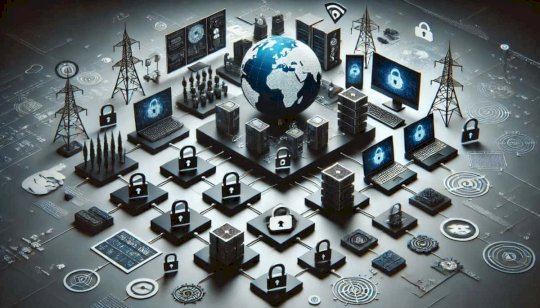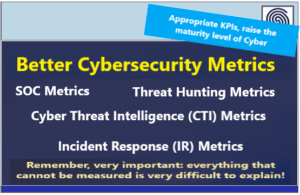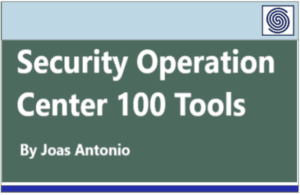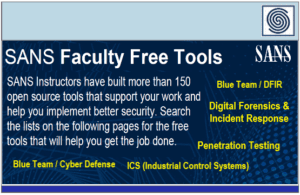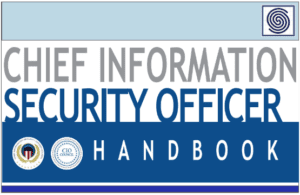Source: hackread.com – Author: Owais Sultan.
Discover essential tips to secure your digital assets like crypto, NFTs, and tokens. Learn about wallet safety, avoiding phishing, 2FA, and protecting your holdings against theft.
As digital assets like cryptocurrencies, tokens, and NFTs grow in popularity, so does the importance of securing them. These assets are valuable, decentralized, and often stored in digital wallets that require specific security measures.
However, this decentralization, due to the lack of central oversight, makes them particularly vulnerable to hacking, phishing, malware, and human error. The good news is that with the right precautions and knowledge, you can significantly reduce the risks of theft or fraud.
This guide will explore the basics of digital asset cybersecurity, including common risks and best practices to help protect your crypto holdings.
Understanding Digital Asset Security Risks
Before diving into crypto, it’s crucial to understand the unique security risks that come with managing digital assets. Digital assets are typically stored in wallets, which are secured by private keys and seed phrases. These are the most critical components that control access to your assets, and if compromised, you could lose everything.
Hackers often target exchanges, wallets, and platforms where cryptocurrencies are stored. Phishing scams trick users into revealing their private keys or login details. Malware can infect devices, enabling cybercriminals to steal your credentials. Additionally, human error, such as sending funds to the wrong address or losing your private keys, can result in permanent asset loss.
Wallets: Private Keys, Seed Phrases, and Passwords
Your crypto wallet is the most important part of your security setup. Each wallet has a public key (which is shared with others to receive funds) and a private key (which grants access and control over your assets). Most wallets also use a seed phrase to recover access in case the wallet is lost or damaged. This seed phrase consists of 12-24 random words that serve as a backup to your private key.
Backing up your seed phrase securely is essential. Store it offline in a secure location—never on your computer or in the cloud, where it could be hacked. Losing your seed phrase means losing access to your funds permanently. Similarly, ensure your wallet has a strong, unique password for day-to-day access and use a password manager to keep track of it safely.
Using Non-Custodial Wallets for Better Security
When choosing a wallet, consider whether it’s custodial or non-custodial. In a custodial wallet, a third party, like an exchange, controls your private keys. This can leave your funds vulnerable if the platform is hacked. A non-custodial wallet gives you full control of your private keys, making it a more secure option. Because non-custodial wallets are so secure, many digital currency enthusiasts consider them the best Bitcoin wallet option for keeping high-value assets safe and secure.
Two-factor authentication (2FA)
Another critical security measure is enabling two-factor authentication (2FA) on your crypto accounts. 2FA requires an additional authentication step (such as a code sent to your phone) when logging into accounts. This makes it much harder for hackers to gain access, even if they have your password.
Use a 2FA app like Google Authenticator or Authy for better protection. Avoid using SMS-based 2FA, as it’s vulnerable to SIM-swapping attacks, where hackers can hijack your phone number. Additionally, ensure that any backup codes or recovery methods for your 2FA are stored securely, as losing access to your 2FA can lock you out of your accounts permanently.
Always Double-Check Wallet Addresses
Cryptocurrency transactions are irreversible, which means once funds are sent, they cannot be recovered. Always double-check wallet addresses before sending or receiving funds. This simple step can save you from accidentally sending assets to the wrong address.
If you receive a request to send crypto, verify the wallet address and ensure it matches the intended recipient. You can also use QR codes to minimize the chance of errors when entering an address manually.
Beware of Phishing and Social Engineering
Phishing attacks are one of the most common methods cybercriminals use to steal digital assets. These scams often involve fake websites, emails, or messages that mimic trusted platforms like exchanges, wallet providers, or crypto services. If you’re tricked into entering your credentials on a fraudulent site, hackers can access your wallet and steal your assets.
Always check the URL of the website you’re visiting and look for signs of legitimacy. Never share your private keys, seed phrases, or sensitive information over email, phone, or social media. Be cautious of unsolicited messages, and always verify requests before acting on them.
Understand the Risks of Crypto Exchanges
Cryptocurrency exchanges are often targets for cyberattacks, as they store large amounts of digital assets. While exchanges are convenient for trading and holding crypto, they come with risks. For example, if the exchange is hacked or experiences a security breach, your funds could be stolen. Some exchanges also have poorly managed security protocols, putting your assets at risk.
Consider using non-custodial wallets for long-term storage and only keeping small amounts of crypto on exchanges for trading purposes. Research exchanges before using them and check their security track record.
Stay Informed and Educated About Security
The crypto space is constantly evolving, and new threats are emerging all the time. Stay informed by following reputable sources on security best practices, crypto news, and updates on potential vulnerabilities. Joining online communities or forums can help you stay up-to-date on the latest trends, security threats, and emerging technologies, ensuring you understand the evolving landscape.
It’s also important to educate yourself on the specific risks associated with decentralized finance (DeFi) protocols, smart contracts, and other decentralized services. While these platforms offer new opportunities, they can also expose you to unique risks like smart contract bugs, liquidity issues, or governance vulnerabilities that could lead to significant losses. Understanding these risks helps you make informed decisions and protect your assets.
Crypto Security Best Practices: Do’s and Dont’s
Do’s:
- Back up your seed phrase and store it securely in multiple offline locations.
- Use strong, unique passwords for your crypto accounts and avoid reusing passwords from other sites.
- Enable two-factor authentication (2FA) for added protection on all platforms.
- Double-check wallet addresses before sending or receiving funds to avoid errors.
- Research wallet providers and choose reputable ones that prioritize security features.
- Stay informed about new security threats and best practices to protect your assets.
Don’ts:
- Never share your private keys or seed phrases with anyone, as this would give them access to your funds.
- Avoid suspicious links and be cautious of phishing emails or messages that impersonate trusted services.
- Be wary of centralized exchanges, as they are more vulnerable to hacks. Consider using non-custodial wallets for long-term storage.
- Exercise caution with DeFi protocols, as they can have vulnerabilities in smart contracts.
- Don’t trust unverified sources—always verify the legitimacy of platforms and communications before sharing any personal information.
Conclusion
Digital assets offer incredible opportunities, but they also come with unique risks. By following these essential cybersecurity practices, you can significantly reduce the chances of falling victim to theft or fraud. Secure your assets by backing up your seed phrase, using strong passwords and 2FA, avoiding phishing scams, and staying informed about the latest threats in the crypto space.
Ultimately, safeguarding your crypto holdings requires a combination of vigilance, knowledge, and secure practices. By adopting these principles, you can enjoy the benefits of digital assets while minimizing the risks.
Original Post url: https://hackread.com/digital-assets-cyber-security-essentials/
Category & Tags: Cryptocurrency,Blockchain,Security,Cybersecurity,Infosec,NFT,Technology – Cryptocurrency,Blockchain,Security,Cybersecurity,Infosec,NFT,Technology
Views: 3

